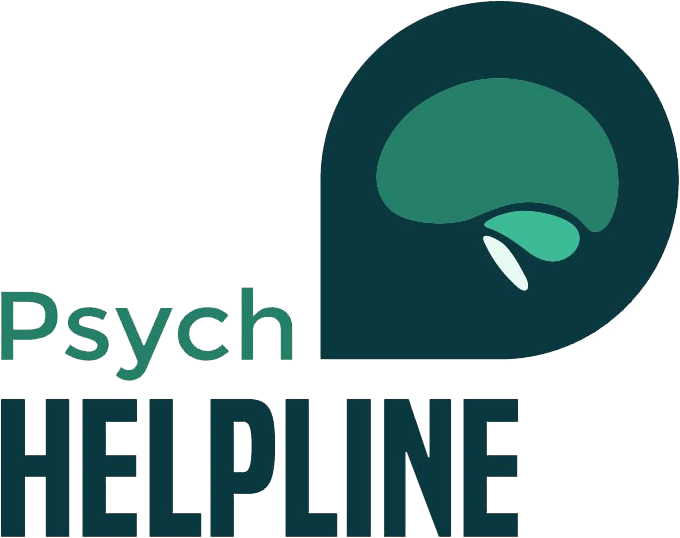Table of Contents
It is important to know what Borderline Personality Disorder (BPD) is and what it can mean for those in relationships with someone who has it.
Borderline Personality Disorder (BPD) known as emotionally unstable Personality Disorder. It is a mental illness marked by a long-term pattern of unstable relationships and strong emotional reactions. These symptoms often result in spontaneous actions and problems in relationships. Some of the symptoms are severe fear of rejection, separation, neglection, and rapid changes between thinking someone’s perfect to believing they are evil; risky behaviors including unsafe sex, drug use, gambling, or collecting credit card debt; threats of suicide or self-harm; difficulty identifying with other people; mood swings from euphoria to intense shame or self-criticism; and frequently using losing one’s temper.
People who are suffering from Borderline Personality Disorder (BPD) tend to view things intensely such as all good or all bad, and their views or opinions about other people can also change very quickly. A person who is seen as a friend one day may be considered an enemy or a traitor the next. And these changing feelings can lead to severe and unstable relationships. They can feel very intensely and are sensitive to any shifts or perceived wrongs. It’s important to mention that BPD is called other things in other countries and in some blogs online.
We all can see that it could be very difficult to be in a relationship with someone who is suffering from Borderline Personality Disorder (BPD) because they can be passionate, easily upset, and reactive. But there are some tools that can be utilized to ensure a much healthier and happier situation. The first tool is to learn about Borderline Personality Disorder (BPD).
How can we manage something that we don’t understand?
Yes, we cannot do that. So, it is necessary to talk about Borderline Personality Disorder (BPD) with our loved ones and how they are experiencing it. Because everyone’s reaction would be different, and they will struggle with different symptoms more than others. So, it is necessary to talk with them. Seek to understand, not judge.
There are two books that are recommended to those who are close to someone suffering from Borderline Personality Disorder (BPD)
· I hate you, don’t leave me.
· Stop Walking on Eggshells.
They are both great for understanding the diagnosis, but also, we can better manage the symptoms that are hurting our relationship.
Also, try to keep your home life with them as relaxed as possible. It is not always easy, but we should try to do our best because those with Borderline do well in situations that are predictable. Also, if they are in a crisis mood it is not a good time to bring up any issue you may be having with them or tell them they need to get help.
To remain calm and relaxed until the crisis passes is best, and then you can bring up something that may be upsetting you.
Now, if you are going to talk with them about something that is upsetting all of you, just try to talk to them in a simple way. Because people with Borderline disorder can be constantly reacting out of their emotional mind (not very logical or reasonable), it will be difficult for them to hear and understand what you are trying to say. They can even react to your simple statement, so it is very important to understand how to talk.
So instead of always fighting or feeling like we cannot speak up, just keep it simple. But keep your sentences short, simple, and direct, by doing this you will give them a chance to hear you, and hopefully not react, but respond with understanding and love.
Try to create upholding healthy boundaries. People suffering from Borderline Personality Disorder (BPD) need boundaries. By holding up healthy and reasonable boundaries, you prevent them from spiraling into their black and white thinking pattern and making things a lot worse. A little tough love and a little boundary setting can go long.
Calling their bluff can also be very helpful. Creating boundaries and calling their bluff, both require that you build up their self-esteem first, we cannot enter a relationship with them and we cannot tell them that they are crossing their boundaries. We cannot do that. We have to let them know that we care and can see all the wonderful traits about them. Because there is a reason you are in a relationship with them, right? So, you need to be assertive. It is okay to admit you did not do what they claim you did and you will not engage in that kind of conversation. Or you can tell them that they are blowing the whole thing way out of proportion. If we always give into them when they are engaging in their Borderline Personality Disorder (BPD) behavior, it will only make things worse. Because we are creating a cycle, right? If they believe what they are saying is true and we react out of it, we are always sabotaging it and telling them yes. If we just hold our ground and say no, we can stop this cycle from getting started.
It is really important to know that giving them control all the time does not end up making them feel better or more safe and secure. It causes the opposite to happen. So, call them on their misinterpretations and black and white thinking sounds abnormal, but it is best.
Take their suicide and self-injury threats seriously. These are common among those suffering from Borderline Personality Disorder (BPD), and many see these threats as manipulative and done for attention, but what you don’t know is that roughly 10% of those people suffering from borderline die from suicide, which means that if they are threatening to kill or harm themselves, or even if they are just telling you that they have been thinking about it or planning it, we need to get some professional help involved
In short, recognize that they are in deep pain and express your concern while still maintaining your healthy boundaries.
Encourage them to seek therapy. Unlike a lot of other diagnoses, most Borderline people welcome the idea of therapy, and this is because they are uncomfortable with how they feel, and would love to find a way to make that stop, which is why there is hope and many people with borderline do fully recover. Many people with borderline do fully recover, so supporting them in these efforts can be great for your lasting relationship.
Get outside emotional support for you. We all need this in relationships, but especially if we are trying to remain calm and supportive, maybe even when we don’t really feel like doing that. Having other friends and family members that we can lean on when we need it is really important. Make time for that as well as some regular self-care time. This will allow you to be strong and assertive when you need to, and to keep your relationship healthy and happy.
Overall, loving someone suffering from Borderline can be difficult at times but it can also be really rewarding, just like any relationship. And by learning how to clearly communicate and diffuse any crisis situation should allow your relationship to grow and thrive.
If the person you love is suffering from Borderline Personality Disorder (BPD)
Being with someone who is suffering from Borderline Personality Disorder (BPD) feels as difficult as you are on an emotional roller-coaster. But it does not mean that the relationship is hopeless.
People suffering from Borderline are so sensitive, especially to signs of rejection. They are also extremely perceptive; if you nod your head saying yes to whatever they say without listening, they will assume that you are not paying attention.
You don’t always have to accept what they are doing or saying, you don’t always have to agree with everything, but what you can do is validate your feelings.
There are no right or wrong, logical or illogical feelings. If they feel offended or upset about anything even if it does not make sense to you, it makes sense to them. You don’t have to compromise your integrity.
Learning how to deal with your loved one’s borderline personality can help you in creating a stronger relationship. Learning about the illness, encouraging responsibility, setting boundaries can make a significant difference in how you relate to your loved one.
Together you can make a path to build a future together beyond your loved one’s disorder. For loved ones of people suffering from Borderline, the illness can emerge to be an invincible barrier standing between you and the person you care so deeply about. By learning how to deal with Borderline personality, you can secure your relationship with your loved one while giving both of you the support you need to heal.
Borderline and your Sex Life

Borderline Personality Disorder (BPD) can affect your emotional condition, relationship, and your ability to control your behavior. So, it is not a surprise to say that Borderline can affect your sex life too.
Research has exhibited that women suffering from Borderline tend to have more negative attitudes about sex. Women with borderline have more mixed feelings about sexual relations and more likely to feel pressured to have sex. Women with borderline disorder report more sexual dissatisfaction.
Borderline can make sex very difficult. In the case of sexuality, a trend towards intense behavior may lead to reckless sexual behavior as well. Extreme sadness, fear, jealousy, and positive emotions can also lead to reckless sexuality. Some people suffering from Borderline also avoid sex.
Can a person with Borderline really Love?

The symptoms of Borderline can resemble love addiction. Love addiction is not diagnosable, addictive behavior is hard to live with. A romantic relationship with someone suffering from Borderline can be stormy. People with borderline personalities can be very caring, affectionate, and compassionate. “Love addiction” is the general idea of “being in love with being in love.” People suffering from Borderline personality are normally highly unstable and their goal is not to feel like they are in love, but it is to avoid feelings of abandonment. This sometimes shows in similar behaviors to “love addiction.”
Can a narcissistic and borderline personality stay together?
The relation between the abuser and the one who is getting abused is the glue that holds a relationship together, energetic and co-dependent. Two narcissistic and two borderline personalities cannot be able to maintain intimacy over time.
The reason why these personalities are attracted to one another is they magnetize. They help each other in playing out their individual drama by fulfilling their needs. In the case of borderline sufferers, when they first confront the narcissist, they start seeing everything they are not and cannot do. They are surprised by their confidence, as they perceive its absence in their own life.
Mostly, people think that people with borderline personality or narcissistic personality are suffering from the same condition. While it is true that there are some overspreading, they are completely different clinical conditions.
Relationships with people who are suffering from Borderline Personality Disorder (BPD) and Narcissist Personality Disorder (NPD) can be relatively kind in the beginning, as each of them will settle into the dynamic, happily fulfilling the other’s needs.
So, encourage your loved ones to explore healthy ways of handling stress and emotions by practicing mindfulness such as yoga or meditation.







